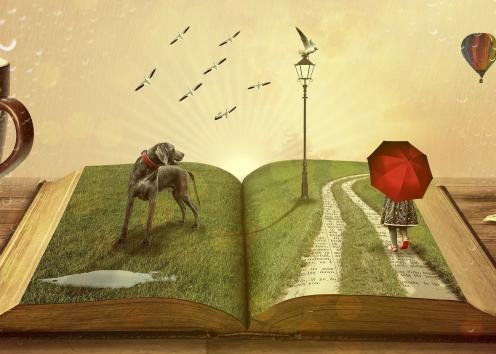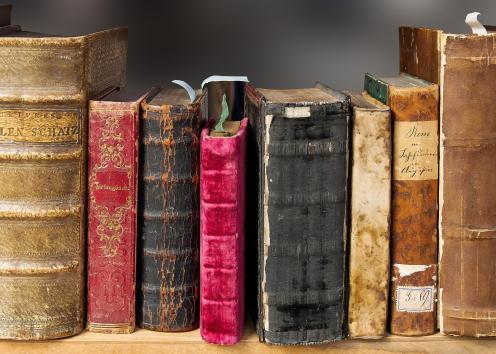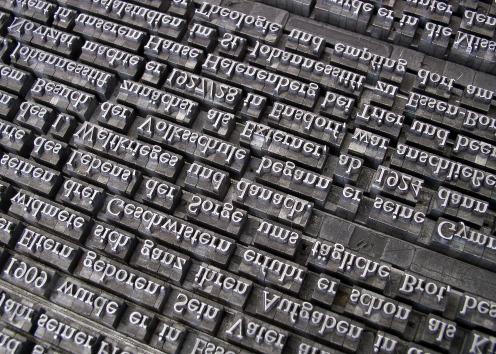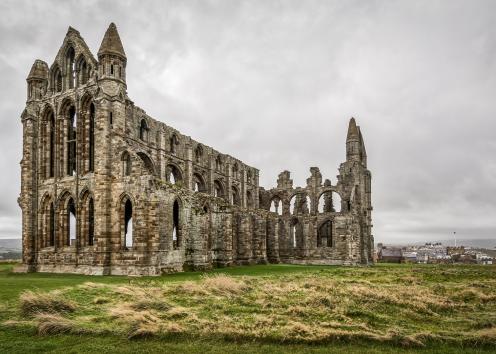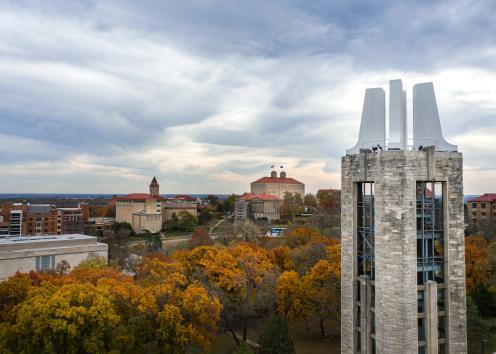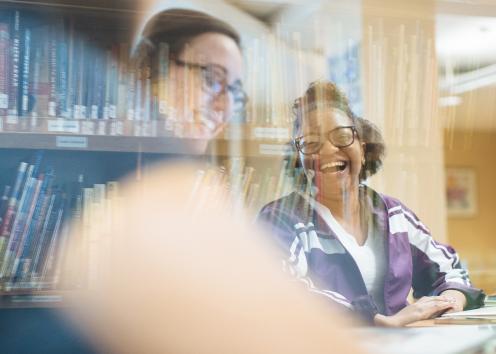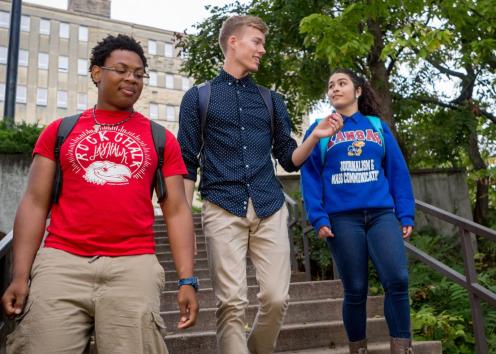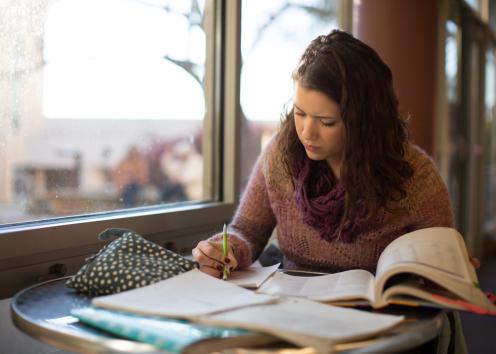Capstone Courses Fall 2026
ENGL 508: Contemporary Literary Theory
Instructor: Phillip Drake
26383 | TuTh 11:00-12:15 PM | Wescoe 4037
This course examines animals in literature along with the emergence of animal studies as a field of inquiry. Embodying a complicated set of interdisciplinary tools and perspectives, animal studies scholarship prompts exploration into the lives of animals, focusing particularly on interactions between human and nonhuman animals. These bodies and relationships provoke complicated and often uncomfortable questions that challenge conventional understandings of a host of issues, including kinship, care, embodiment, individuality, power, precarity, death, extinction, and living well. Furthermore, interactions between human and nonhuman animals often intersect with constructions of gender, race, class, ethnicity, and sex, inviting consideration of justice and social awareness at various scales, from the body and household to the nation and globe. In addition to covering a diverse range of literature, we will explore various disciplinary (literary, anthropological, biological, ethological, psychological, etc.) and theoretical (queer, postcolonial, feminist, existentialist, poststructural, posthuman, ecocritical, etc.) lineages that animate (and are animated by) multispecies studies.
Probable Texts: Wells, Island of Dr. Moreau; Ward, Salvage the Bones; Ghosh, The Hungry Tide; Dick, Do Androids Dream of Electric Sheep?; Woolf, Flush; Kang, The Vegetarian; and other literary and critical works that will be posted on Canvas.

ENGL 530: Irish Literature & Culture - Modern Irish Drama
Instructors: Dr. Zay Dale
26384 | MW 3:30-4:45 PM | Wescoe 4075
In January 1907, following the performance of Irish playwright John Millington Synge’s play The Playboy of the Western World, rioters spread through Dublin arguing that the play was an offense to public morals and an insult against Ireland. Across the Atlantic a few years later, the cast of the same play were arrested at a production in Philadelphia. From this, a few important questions arise: How can theater function as both a cultural nationalist project and an international artistic movement at the same time, and what tensions arise from that dual role? How did Irish dramatists both respond to and influence international developments in twentieth-century theater, particularly in relation to evolving ideas about gender, sexuality, and the body in performance? In this course, we will study the Irish dramatic revival in the twentieth-century within both its national and international frameworks. While investigating the relationship between the major Irish revival dramatists and the Irish cultural and national politics that so often shaped their plays' reception in Ireland, we will look at how Irish playwrights responded and contributed to international developments in twentieth-century theater. May be repeated for credit as the topic changes. Prerequisite: Prior completion of at least one 300- or 400-level English course.

ENGL 551: Fiction Writing II
Instructor: Adam Desnoyers
26385 | TuTh 12:30-1:45 PM | Wescoe 4037
This course is an intensive exploration of the ideas and
techniques of fiction writing within the form of the
short story, with primary emphasis on the careful
analysis and discussion of student works-in-progress.
We will read a variety of published stories each week
and discuss narrative structure and style, imagery and
metaphor, use of scene and exposition, dialogue, and
the various points of view. Requirements: Students will
attend class regularly and participate actively in
discussion. They will produce three short stories of
their own during the semester, which they will submit
to the class to be workshopped. They will also provide
critiques for their peers’ stories as these are
workshopped. Lastly, students will revise their own
stories for inclusion in their final portfolio.
Instructor: Silvia Park
26386 | MW 2:00-3:15 PM | Wescoe 4021

ENGL 552: Poetry Writing II
Instructor: Joseph Harrington
26387 | TuTh 2:00-3:15 PM | Wescoe 4075
Instructor: Brian Daldorph
26274 | M 5:30-8:20 PM | Regnier 256 - Edwards
This workshop is based on the idea that to be a good writer, you have to write a lot and read a lot. So, we’ll all be doing both. We will read a lot of the work of student poets in the class (i.e., you), as well as poems by contemporary published poets who aren’t in the class. You’ll be required to compose a poem most weeks and to submit it to other members of the class. We’ll take different approaches over the course of the semester, to see what a poem is doing and to suggest ways the author might take it in new and exciting directions. My philosophy: all poetry, regardless of subject-matter, is about words, and words are sounds or marks on a page + blank space. We get to make imaginative compositions out of those sounds, marks, and space, and doing so can be a lot of fun. The goals? To improve and deepen your skill and confidence writing, talking (and asking questions) about writing, giving and accepting useful critique, and your versatility as a wordsmith generally. We will think about your poetry, not simply as a group of individual poems, but as a growing (and changing) body of work. We’ll also get into the habit of thinking about poetry as auditory and visual, not “purely” textual, art.
*This course is taught on the Edwards Campus and satisfies the LLW requirement for a Capstone.

ENGL 570: Topics in American Literature - Literature of the American Revolution
Instructor: Laura Mielke & Randall Fuller
26388 | MW 2:00-3:15 PM | Wescoe 4020
250 years ago, the Declaration of Independence was composed, signed, published, and read aloud across the North American colonies and beyond. In this course, we will closely study the Declaration as a work of literary as well as political import and take up a range of contemporary texts that inspired or were inspired by the Declaration. As we read, we will ask: What does it mean to write and speak a nation into being? How has the Declaration been interpreted, by whom, and why? What impact has the interpretation of the Declaration—and in particular, its insistence that “all men are created equal”—had on national culture (as well as politics)? Ultimately, we will not only look at the intellectual and social contexts from which the Declaration arose, but also the ways in which the Revolutionary Era speaks to us now.

ENGL 582: Multimedia & Multimodal Rhetorics
IInstructor: Sean Kamperman
26389 | TuTh 9:30-10:45 AM | Wescoe 4019
In this course, we will examine the impact of multimedia/multimodal discourse on ourselves and our culture by rhetorically analyzing and composing a variety of digital media genres in multiple modes, including audio and video. The course will explore how traditional processes of writing and reading texts are challenged by communication across a range of diverse new media genres that employ multiple modes of communication (linguistic, visual, spatial, gestural, and aural ways of making meaning). Through our analysis and production of multimodal texts, we will explore how medium and mode shape the message, work to persuade multiple audiences, and alter the way that we understand, structure, and process knowledge.

ENGL 598: Honors Proseminar- The Gothic
Instructor: Ann Rowland
26390 | TuTh 2:00-3:15 PM | Wescoe 4020


